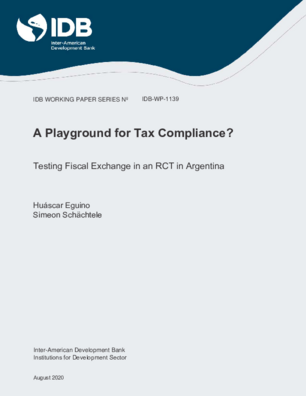A Playground for Tax Compliance?: Testing Fiscal Exchange in an RCT in Argentina
Date
Aug 2020
We present new evidence that a non-threatening behavioral intervention appealing to reciprocity significantly increases tax compliance in a setting (i.e., crisis-ridden Argentina) where one might least expect such an intervention to succeed. Prior research offers many examples of the efficacy of more threatening deterrence approaches. In contrast, field experimental evidence for non-deterrence nudges such as those appealing to taxpayers feelings of reciprocity (“fiscal exchange”) has been limited. This paper reports evidence from a randomized controlled trial with over 20,000 taxpayers in Argentina. A redesigned tax bill with fiscal exchange appeal increased payment rates of tax delinquents by about 20 percent, or almost 40 percent when the bills were delivered in person. With the fiscal exchange appeal, the new bill design elicited significantly more payments than without. The unfavorable economic crisis context in Argentina makes the impacts remarkable. We hypothesize that having children as beneficiaries, the visual form of the appeal, and the proximity between taxpayers and public services in the municipal setting have contributed to the positive compliance impacts.
Generative AI enabled





